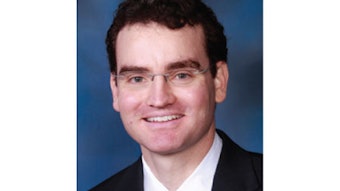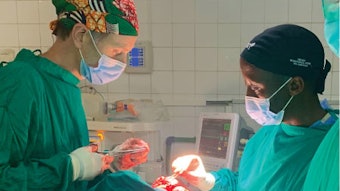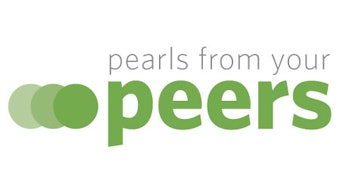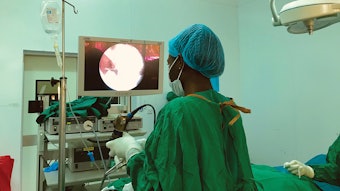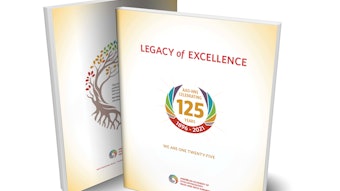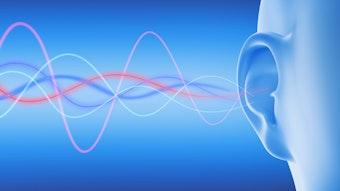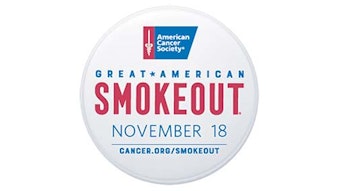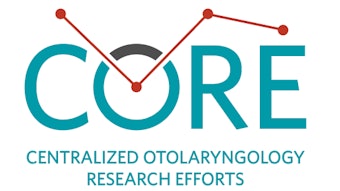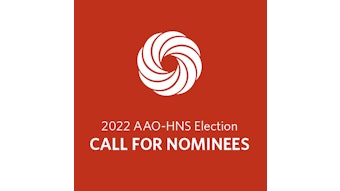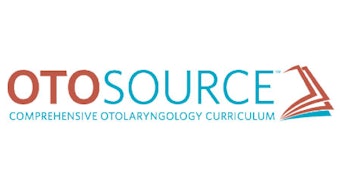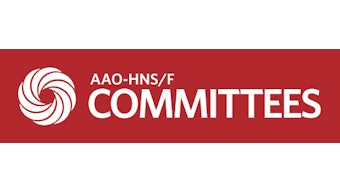Out of Committee: Voice Committee | GERD Awareness Week: Newer Research and Testing and Treatment Options
The American Academy of Otolaryngology–Head and Neck Surgery (AAO-HNS) Voice Committee works with its members to raise awareness, promote public policy, and advocate for vocal health issues.

The American Academy of Otolaryngology–Head and Neck Surgery (AAO-HNS) Voice Committee works with its members to raise awareness, promote public policy, and advocate for vocal health issues. GERD Awareness Week is November 21-27, 2021, and the AAO-HNS would like to draw attention to this issue as it relates to laryngeal health.
Gastroesophageal reflux disease (GERD) is a relatively common medical condition for many Americans and has been part of both our medical and social vernacular for well over a century. The relationship between the backflow of food and digestive enzymes and the sometimes painful condition known as heartburn has long been studied, and up to 20% of Americans struggle with some form of reflux concerns.1
Many people with reflux simply try to avoid foods that trigger this uncomfortable condition, while others take over-the-counter remedies to allow them to be able to enjoy more of these foods in their diet. There is no single cause of reflux, and there is also no simple solution for many patients. Issues such as esophageal dysmotility and altered lower esophageal sphincter tone can be implicated as causes of GERD but are themselves due to systemic issues, obesity, genetics, and other confounding factors.2
Physicians also distinguish between simple heartburn and the constellation of symptoms that are associated with GERD above the esophagus to further define the spectrum of injury this condition can cause. Multiple testing modalities are now available that allow for a more refined diagnostic acumen for both traditional GERD and extra-esophageal reflux disease (EERD), including pH probe, impedance, high resolution esophageal manometry and digestive enzyme analysis studies.3,4 It is the EERD symptoms that are most bothersome to patients in the otolaryngology clinic and which traditionally prompt heavy use of proton pump inhibitor therapies in this group. Most reflux events for EERD patients are nonacidic or weakly acidic however, and your patients may not always respond well to acid suppression alone to control symptoms when ongoing nonacid reflux continues.
GERD Awareness Week began in 1999 as a mechanism for educating the population regarding the disease presentation and treatments for reflux. An important part of patient education in this regard involves lifestyle recommendations. The timing of GERD awareness week coincides with the Thanksgiving holiday in the United States, which is an accepted moment of overindulgence and dietary indiscretion for much of the public.
Weight loss, avoiding fatty meals near bedtime, smaller portions, and avoidance of heavily acidic foods can all help improve symptoms of heartburn and reflux.5 These types of small lifestyle changes can have a big impact on reducing overall reflux burden in the esophagus and can help to significantly decrease throat irritation, globus sensation, cough, and hoarseness in these patients. Making a commitment to healthier eating, eating more slowly, and enjoying smaller portion sizes at meals can all have a positive effect on GERD a little at a time. Over-the-counter antacids, H2 blockers, and proton pump inhibitors all have an ongoing role in helping to mitigate indigestion and discomfort related to reflux. Alginate chewables and suspensions are becoming more common in our armamentarium of reflux relief for our patients, especially for those with documented nonacid reflux and extra-esophageal reflux disease or with high suspicion for EERD in the face of failed improvement on acid suppression alone. Alginates work by forming a barrier to reflux and not as an acid-neutralizing agent like other reflux treatments.6 In severe cases, antireflux surgery may also be appropriate in carefully selected patients who wish to avoid medications or have symptoms that interfere markedly with their quality of life.7
GERD is known to cause ongoing, severe esophageal inflammation that can induce precancerous changes in the esophageal mucosa such as Barrett’s Esophagus. GERD Awareness Week was envisioned to help patients recognize symptoms that might lead to proper testing for this disorder. As otolaryngologists, EERD can be suspected and improved significantly in our patients by being mindful of the triggers of GERD, using objective reflux testing where available or when empiric medication trials fail and considering esophageal screening in those with EERD and/or GERD.8 This week is a great time to educate yourself and your patients about newer research and testing and treatment options for GERD and its upstairs neighbor, EERD.
References:
1. Rubenstein JH, Chen JW. Epidemiology of gastroesophageal reflux disease. Gastroenterol Clin North Am. 2014 Mar;43(1):1-14. doi: 10.1016/j.gtc.2013.11.006. Epub 2013 Dec 27. PMID: 24503355.
2. Herregods TV, Bredenoord AJ, Smout AJ. Pathophysiology of gastroesophageal reflux disease: new understanding in a new era. Neurogastroenterol Motil. 2015 Sep;27(9):1202-13. doi: 10.1111/nmo.12611. Epub 2015 Jun 5. PMID: 26053301.
3. Yodice M, Mignucci A, Shah V, Ashley C, Tadros M. Preoperative physiological esophageal assessment for anti-reflux surgery: a guide for surgeons on high-resolution manometry and pH testing. World J Gastroenterol. 2021 Apr 28;27(16):1751-1769. doi: 10.3748/wjg.v27.i16.1751. PMID: 33967555; PMCID: PMC8072189.
4. Klimara MJ, Johnston N, Samuels TL, Visotcky AM, Poetker DM, Loehrl TA, Blumin JH, Bock JM. Correlation of salivary and nasal lavage pepsin with MII-pH testing. Laryngoscope. 2020 Apr;130(4):961-966. doi: 10.1002/lary.28182. Epub 2019 Jul 22. PMID: 31329290.
5. Sethi S, Richter JE. Diet and gastroesophageal reflux disease: role in pathogenesis and management. Curr Opin Gastroenterol. 2017 Mar;33(2):107-111. doi: 10.1097/MOG.0000000000000337. PMID: 28146448.
6. Wilkie MD, Fraser HM, Raja H. Gaviscon® Advance alone versus co-prescription of Gaviscon® Advance and proton pump inhibitors in the treatment of laryngopharyngeal reflux. Eur Arch Otorhinolaryngol. 2018 Oct;275(10):2515-2521. doi: 10.1007/s00405-018-5079-0. Epub 2018 Jul 30. PMID: 30062580.
7. Rebecchi F, Allaix ME, Cinti L, Nestorović M, Morino M. Comparison of the outcome of laparoscopic procedures for GERD. Updates Surg. 2018 Sep;70(3):315-321. doi: 10.1007/s13304-018-0572-y. Epub 2018 Jul 19. PMID: 30027381.
8. Carroll TL. Reflux and the Voice: getting smarter about laryngopharyngeal reflux. Otolaryngol Clin North Am. 2019 Aug;52(4):723-733. doi: 10.1016/j.otc.2019.03.015. Epub 2019 May 11. PMID: 31088696.
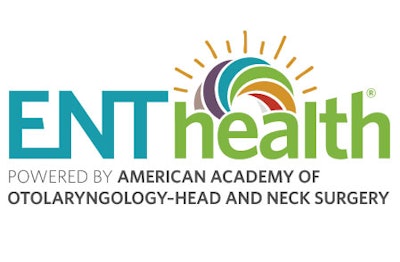
GERD Awareness Week:
November 21-27, 2021
www.enthealth.org offers information for your patients on these topics and more:
LPR Management and Lifestyle Changes
www.enthealth.org is dedicated to helping patients. The content is developed from a team of AAO-HNS members, and information is delivered via peer-reviewed articles, interactive features, and video content featuring physicians. Learn more about the site and our contributors at https://www.enthealth.org/about-us/.
